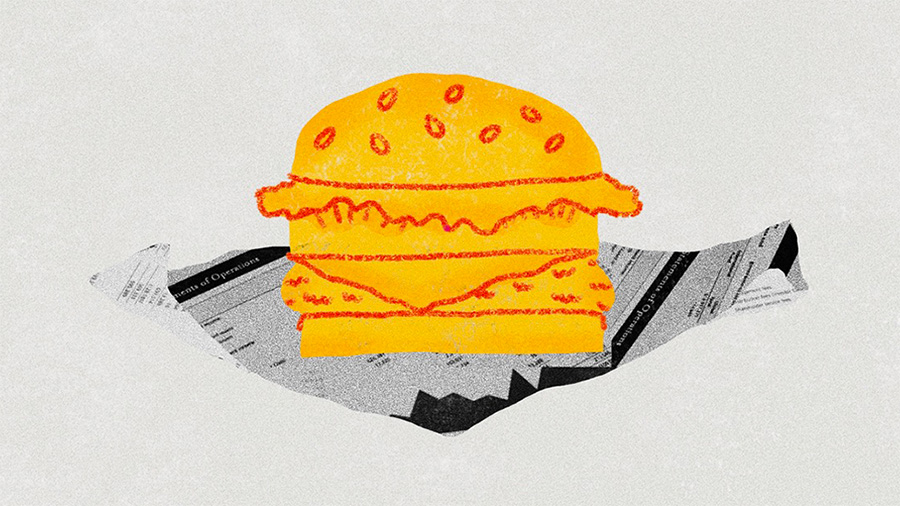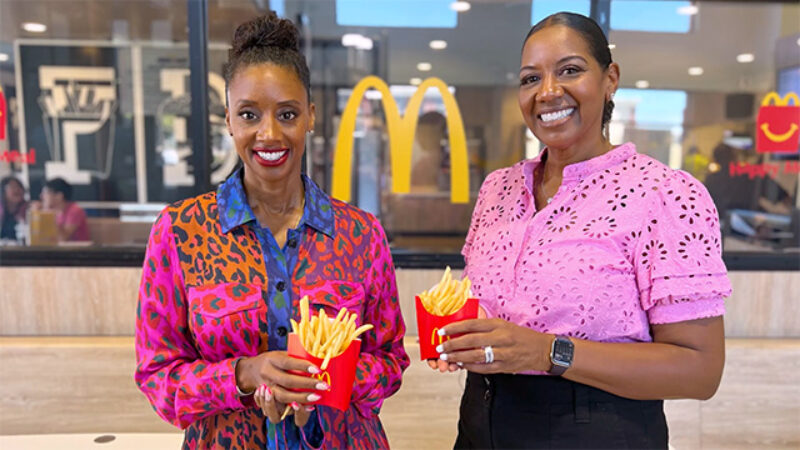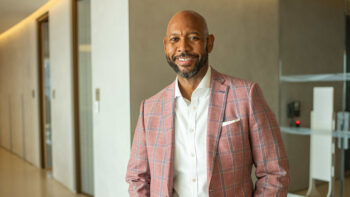Betting on burgers: How a mother and her daughters built a McDonald’s franchise empire
A single loan from Wells Fargo four decades ago helped a family build a thriving portfolio of 21 McDonald’s restaurants in South Los Angeles.
Two California-raised daughters, a special mother, love, hope, and opportunity, on a sesame seed bun.
Sisters Nicole Harper Rawlins and Kerri Harper-Howie didn’t initially follow in the trailblazing, McDonald’s-franchising footsteps of their mother, Patricia Williams.
Harper-Howie discovered an appreciation for winning arguments and problem solving as a high school sophomore, leading to her affection for the law. Rawlins had a burgeoning career as social worker in Los Angeles County.
Practicing law and social work don’t seem to have a lot in common with selling cheeseburgers, but Harper-Howie and Rawlins found their previous careers gave them exactly what they needed to thrive as restaurateurs.
‘I will never leave Wells Fargo’
In the early 1980s, Williams and her husband worked government jobs — he with the Los Angeles Police Department, and her for the state of California. When they opened their first McDonald’s, they maintained those roles for some time, meaning lots of late nights and early mornings.
After a few years, her husband wanted to get out of the business, so Williams bought him out, becoming the franchise’s sole owner. It was during that time that Williams’ hard work laid the foundation of what eventually became Harper-Howie and Rawlins’ enterprise.
“In the beginning, she was hustling,” said Rawlins. “She felt she had a lot of catching up to do when it came to running a restaurant. But her attitude wasn’t one where she felt sorry for herself. There was no lamenting and I remember that from the beginning.”
For her daughters, having a mom who owned two McDonald’s was, well, cool.
“I remember in elementary school,” said Harper-Howie, “you couldn’t just get cheeseburgers and fries at lunch. But my mom would bring it to us and all the other kids loved it. It was just an exciting idea that my mom had that ability. Looking back, I was younger and a little more oblivious to her grind. For her to be present in that way, at that busy time for her, was amazing.”
According to a 1992 brief issued by the U.S. Department of Commerce Economics and Statistics Administration (PDF), only 3% of the small businesses in the United States were Black-owned, accounting for less than 1% of all the sales and receipts generated. That number was even lower for Black women. And it’s one of the reasons Williams initially struggled to find financing for her businesses.
Watch Kerri and Nicole talk about their journey as franchisees
“At the time, it was very uncommon for a Black woman to acquire or get that type of funding,” Rawlins said. “And so, she went to different banks, and no one would give her loan.”
That all changed at a Wells Fargo branch in Culver City, California, in the late-1980s. A Wells Fargo banker reviewed Williams’ documents and portfolio, eventually resulting in a loan allowing her to keep her franchises open.

“From that day on, mom said, ‘I will never leave Wells Fargo,’” Rawlins recalled.
Forty years later, that loan — coupled with Williams’ and her daughters’ hard work — has yielded a portfolio that includes 21 McDonald’s restaurants in South Los Angeles. Rawlins and Harper-Howie aren’t the sole reason Wells Fargo created the McDonald's® Franchisee Lending Program for owner/operators, but they’ve been a mainstay since its inception more than a decade ago.
A part of the Wells Fargo Restaurant Finance Group, the McDonald's® Franchisee Lending Program has a team in place with dedicated lending guidelines through which they’ve deployed more than $5 billion to the McDonald’s franchise system.
“Kerri and Nicole are one of our top lending relationships,” said Wells Fargo Senior Relationship Manager Richard Kabel. “Seeing how much they’ve grown and all the obstacles they’ve faced has confirmed to us that these are the people and company we are looking to bank. They are solid stewards of their community and have been loyal to Wells Fargo as we are to them.”
“Neither of us comes with ego, but with humility and a fundamental desire to do right for our business and for each other.” Kerri Harper-Howie, McDonald’s franchisee
Finding their way home
In the early 2000s, after contemplating the demands of her social work career, Rawlins decided she needed a career change.
“Mom never pushed us into the business,” said Rawlins. “But I’d been thinking about it and decided it was time to join mom in the family business.”
“After I told her I wanted to work with her, she said she was happy to have me join, but that it wasn’t going to be easy street,” said Rawlins. “She said ‘It’s probably going to be more work than you’re doing right now.’ And though the business is technically selling hamburgers, the majority of our business is people. Having my background [in social work] and being able to understand our customers and our employees has been huge. Knowing how to talk to people, I use it more than I would have ever imagined.”
As the years passed, Harper-Howie noticed something during holidays, and family cookouts and gatherings. With her mom and older sister working together, almost all conversations led back to McDonald’s.
The constant conversations about work, the opportunity to grow an already flourishing business, and moving back home after a career journey that had landed her in New York proved to be enough for Harper-Howie curtail her legal career and join her family’s “other family.”
“They welcomed me with open arms,” said Harper-Howie. “It was the right time. Mom and Nicole were already well-known nationally and their operations were award winning. I fundamentally desire to add value to any environment I’m in and it turns out law was probably the single-most helpful pre-career I could have prior to being a franchisee. We have so many employees and California is a very intense state for employers.”
Watch as sisters Nicole and Kerri take a look back
As Williams inched closer to retirement and fully transitioning her franchises to Rawlins and Harper-Howie, the sisters began to think about how their leadership styles would mesh as the enterprise looked to grow and expand. After all, running a business that would eventually employ 1,400 people — with a family member — presents some unique challenges.
Harper-Howie’s time away from the family provided an outsiders’ perspective that proved to be an adjustment for Rawlins and Williams.
“Mom had a director of operations, and they had a very solid, successful system of how they did things,” said Rawlins. “So, Kerri comes into the organization and she’s a change agent. She showed us that the world is changing and we can’t get stuck in ‘This is how we always do it.’ When you’re in it sometimes it’s hard to see how you really need a push forward.”
When Williams officially left the business in 2019, Rawlins and Harper-Howie charted a course for how they’d operate together.

“Our situation is definitely unique, but it’s also incredibly cool,” said Harper-Howie. “We have different areas of expertise that are complementary. Fortunately, neither of us comes with ego, but with humility and a fundamental desire to do right for our business and for each other. Nicole often makes final decisions on things, but since we’re so like-minded I would say 85% to 90% of the time we are in complete agreement.”
Despite the update to Williams’ tried-and-true model, one thing the sisters have held firm to is their mother’s belief in community.
It’s one of the reasons they regularly supply food for community events, sponsor youth athletic leagues, and serve as counsel and support for a host of local organizations.
Because if you strip away the success, the degrees, the financial security, and the restaurants, Harper-Howie and Rawlins are proud of where they come from.
“We're regular Black girls from Inglewood … that's who we are,” said Rawlins. “That's who we've always been, and that's what we always will be.”










